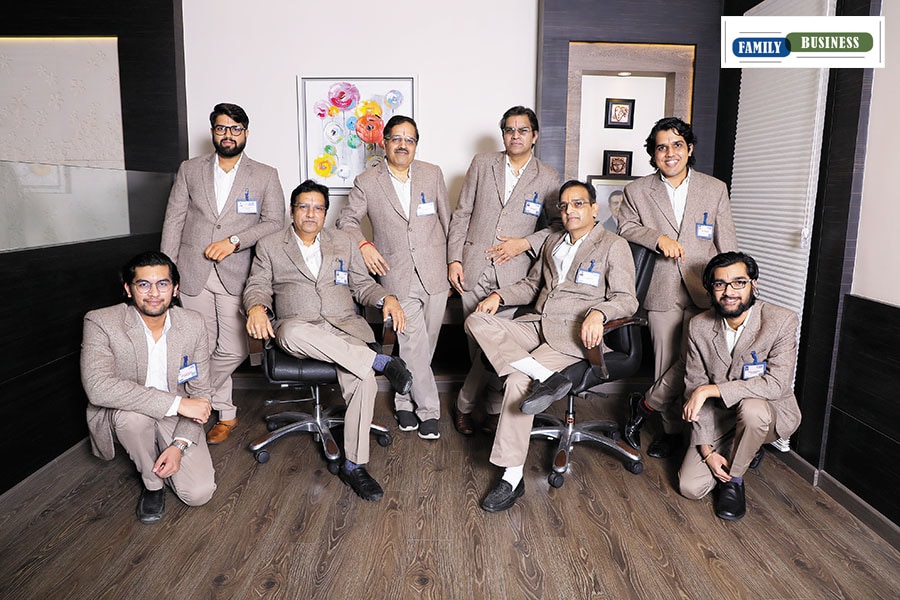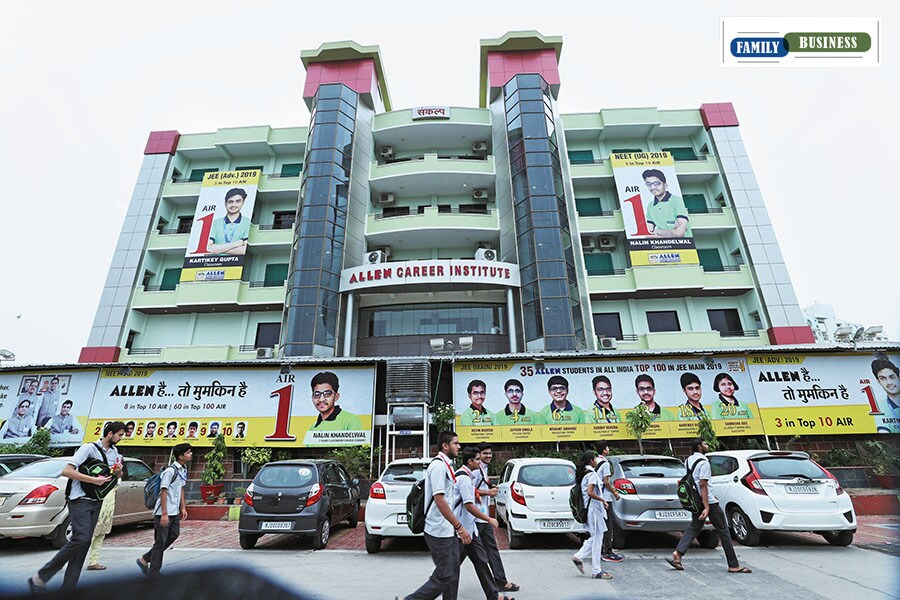
They built a coaching empire in Kota. Next, a global makeover
The Maheshwari brothers have nurtured a Rs1,600 crore coaching empire out of Kota. Now the second gen has global sights for Allen Career Institute
 (From left, sitting): Keshav Maheshwari, Rajesh Maheshwari, Govind Maheshwari, Aaradhya Maheshwari; (From left, standing): Anand Maheshwari, Naveen Maheshwari, Brajesh Maheshwari, Aviral Maheshwari
(From left, sitting): Keshav Maheshwari, Rajesh Maheshwari, Govind Maheshwari, Aaradhya Maheshwari; (From left, standing): Anand Maheshwari, Naveen Maheshwari, Brajesh Maheshwari, Aviral MaheshwariImage: Amit Shakywal for Forbes India
Govind Maheshwari vividly remembers that fateful night in 2008. At around 12.30 am, the medical teaching faculty at Allen Career Institute, comprising six members, resigned en masse, and informed the four Maheshwari brothers.
The incident, the first case of Allen’s teachers being poached by a rival institute, had the potential to hurt the coaching institute, which was started in 1988 by the eldest brother Rajesh with eight students. Reason: The medical coaching stream was the biggest for Allen. Total revenue in 2008 stood at ₹82 crore, and over 12,000 students were enrolled across four study centres in Kota, Rajasthan.
Worse was to follow. Students refused to take class by new teachers. No amount of persuasion worked. In teaching, an institute gets its name by the faculty, and Allen had the best minds in Kota. The brothers—Rajesh, Govind, Naveen and Brajesh—were in a fix.
There was only one option. The four brothers picked up the chalk, and decided to take classes. “Our biggest strength is our unity and understanding,” says Govind, the eldest brother who looks after the financial operations of the company. Brajesh chips in. “It’s a team, and it has always been a team,” says the director of academics, and the second one to join Rajesh in the family business.
What could have easily been the second major crisis for offline-heavy Allen—the March lockdown and closing of schools and colleges and coaching centres—didn’t turn out that way. Reason: The second generation had been modernising the business, giving it a tech makeover. In April, 80,000 students enrolled for offline classes were shifted to online. Over the next two months, 20,000 more went online. For a three-decade-old coaching institute, with an almost negligible presence in offering online classes till last year, the shift was nothing short of astonishing.

What has been equally incredible is the pace of growth after the first two decades. What started with only one centre, one subject (maths), and eight students, and a few thousands in revenue in the first year has now spawned into a massive business empire worth ₹1,600 crore, making the Maheshwaris the biggest in Kota. From 2,800 students in 1998-99, and operating one centre, Allen had moved to 12,300 students by 2008-09 with four centres in Kota.
(This story appears in the 30 November, -0001 issue of Forbes India. To visit our Archives, click here.)




 From Kota, Rajasthan, the Allen Career Institute has expanded to 18 cities in six states
From Kota, Rajasthan, the Allen Career Institute has expanded to 18 cities in six states



